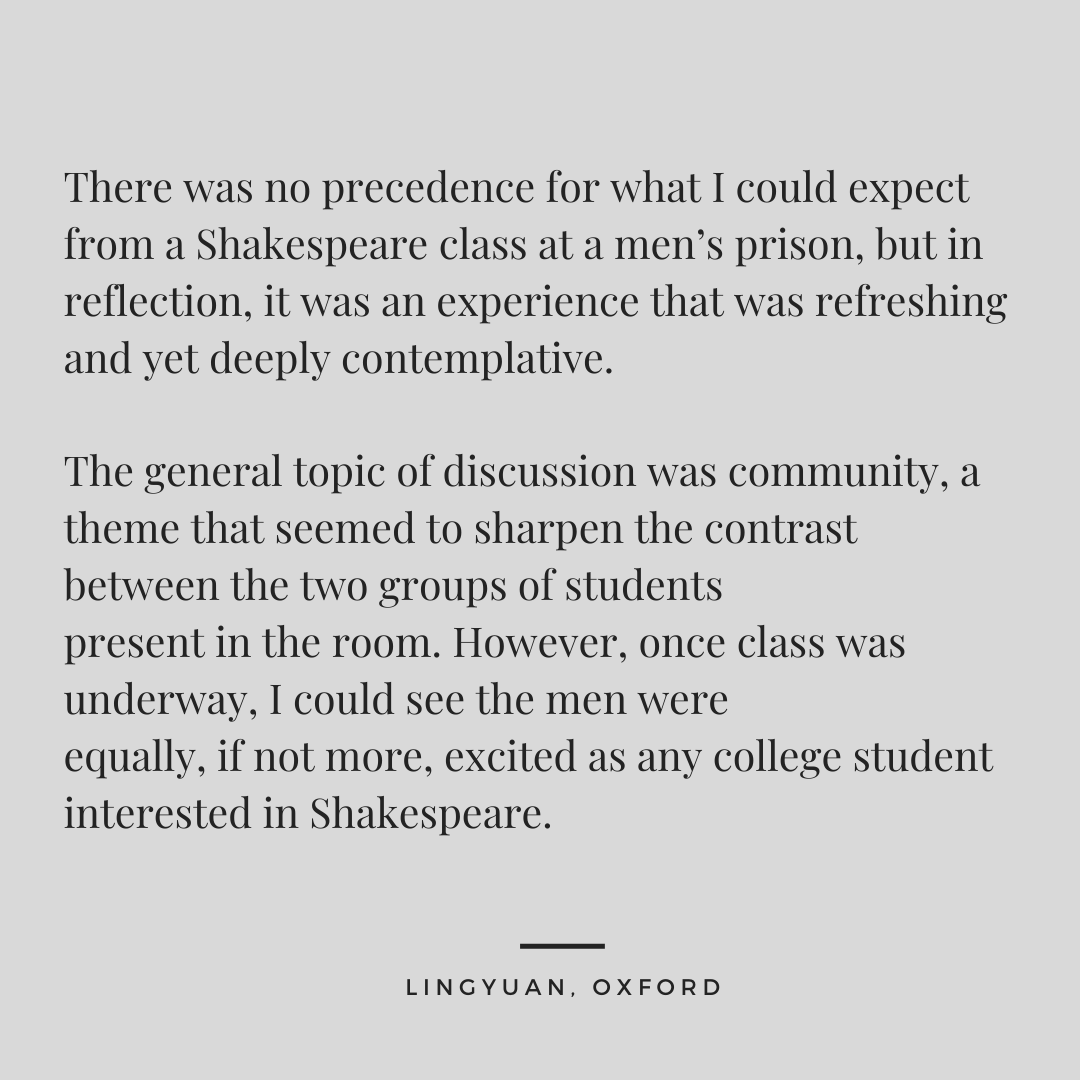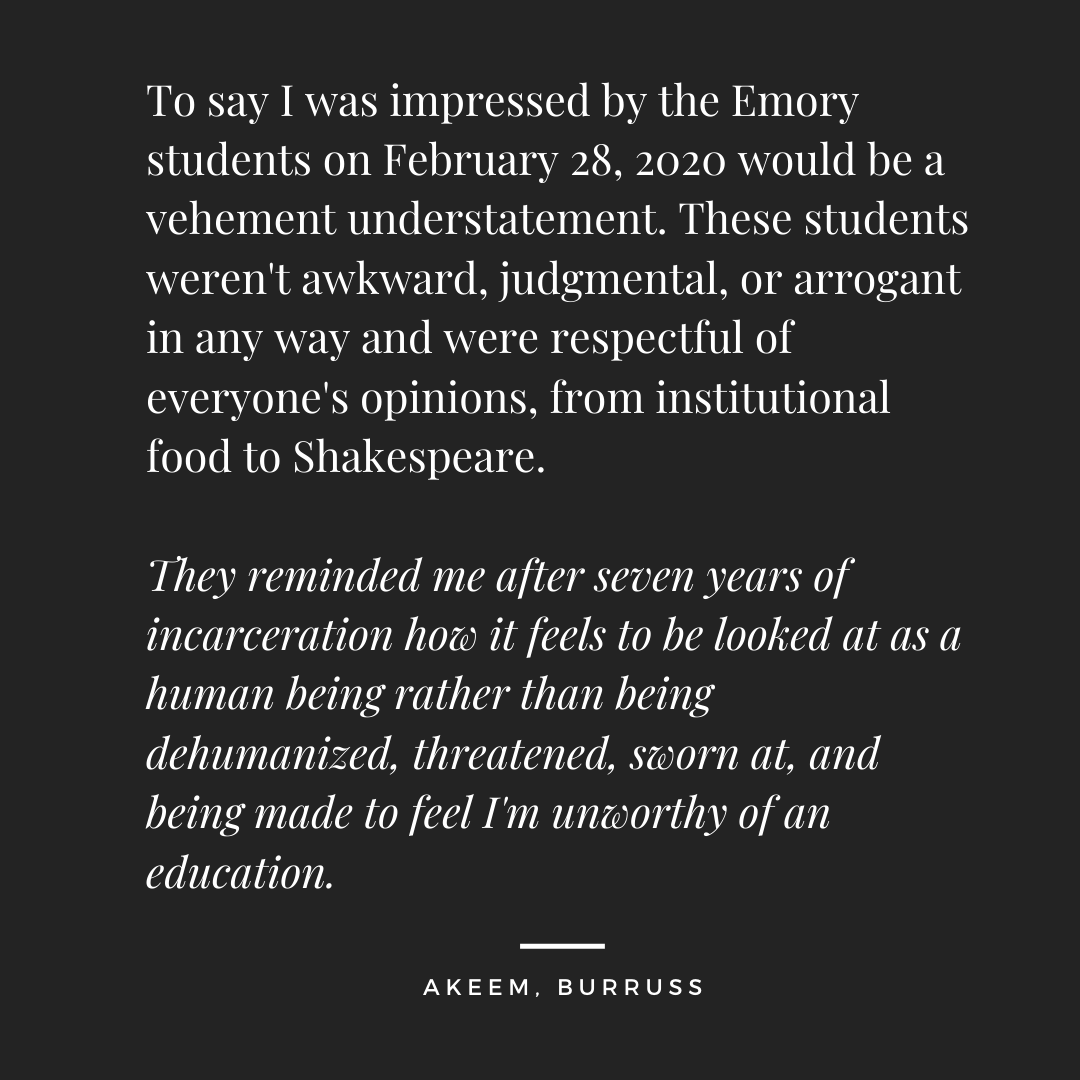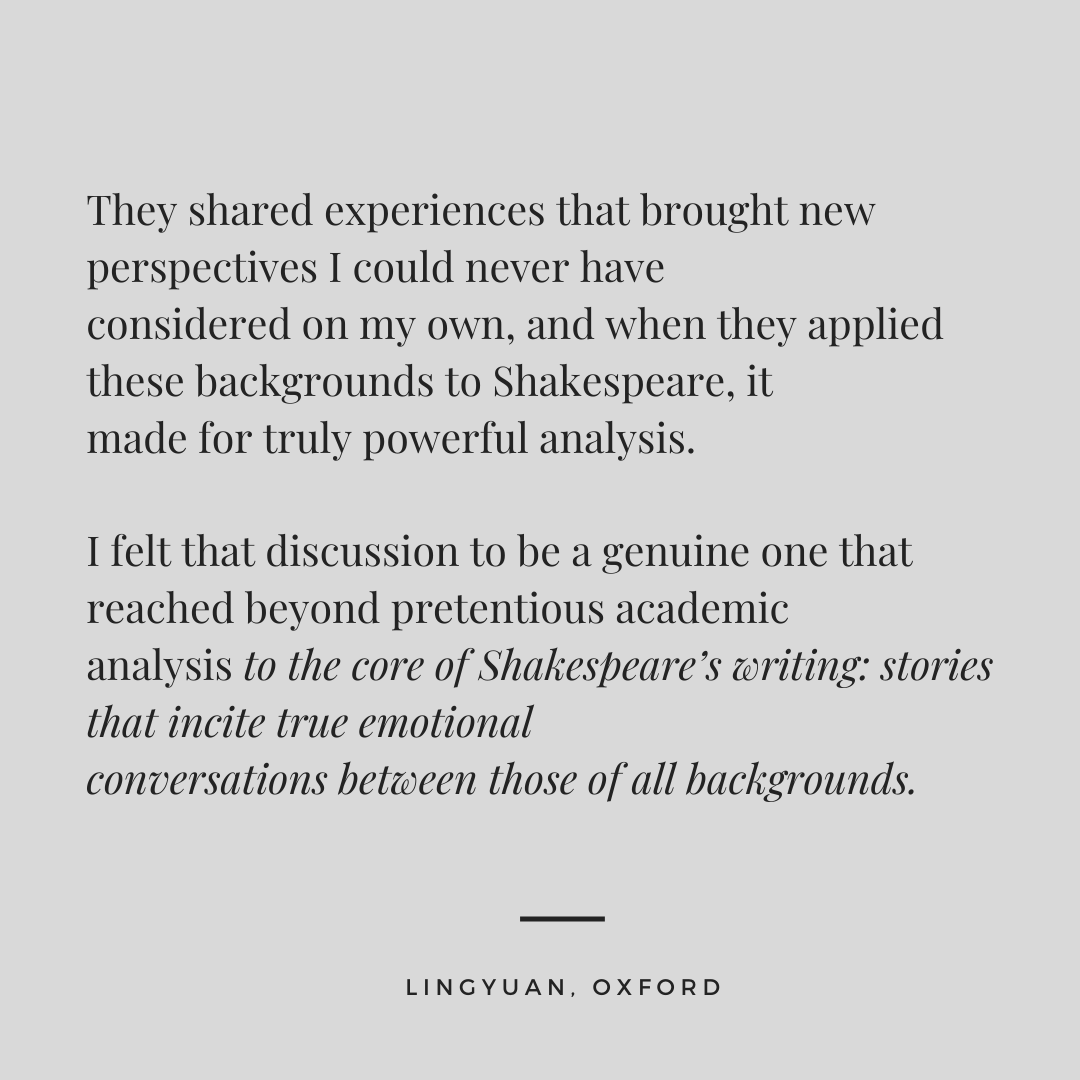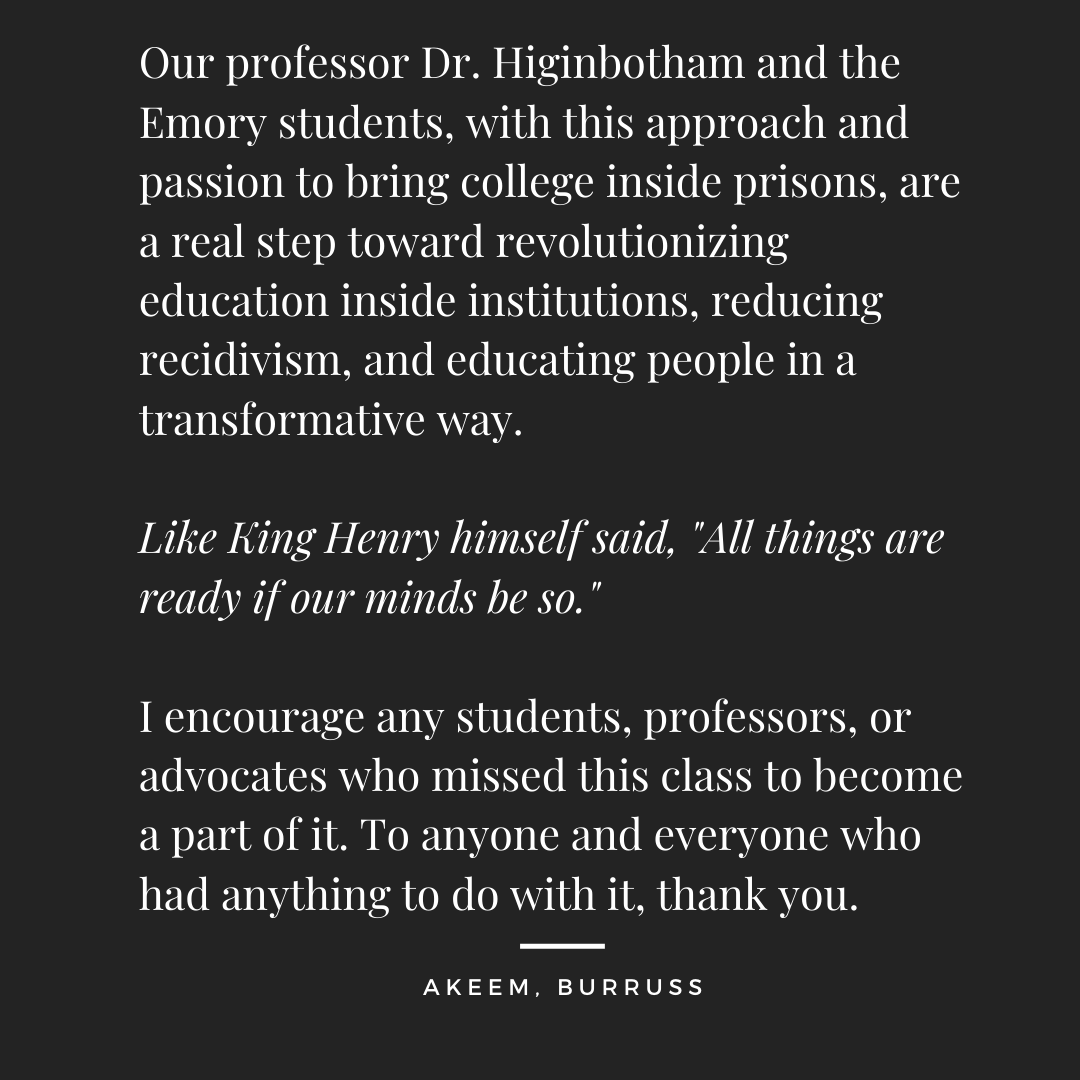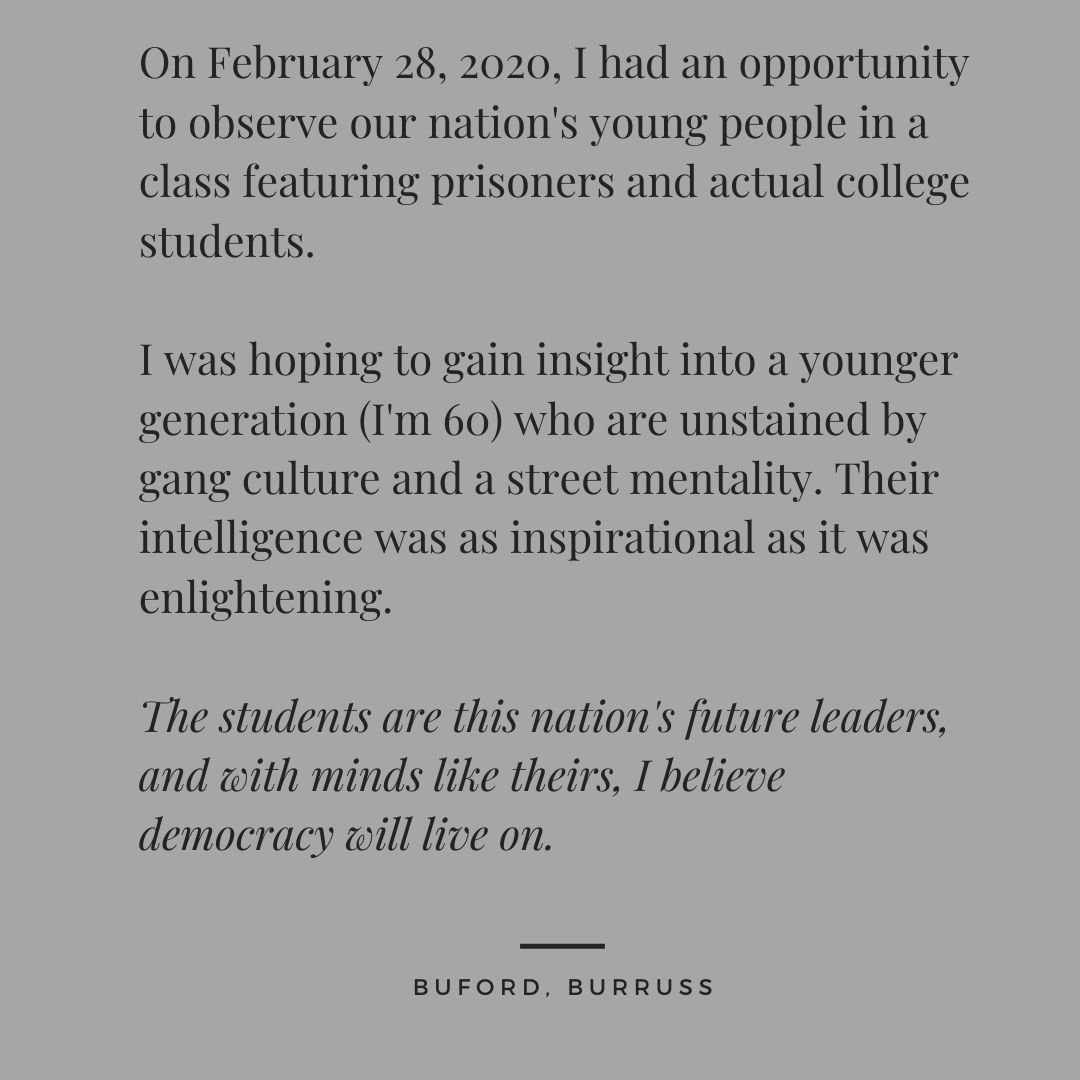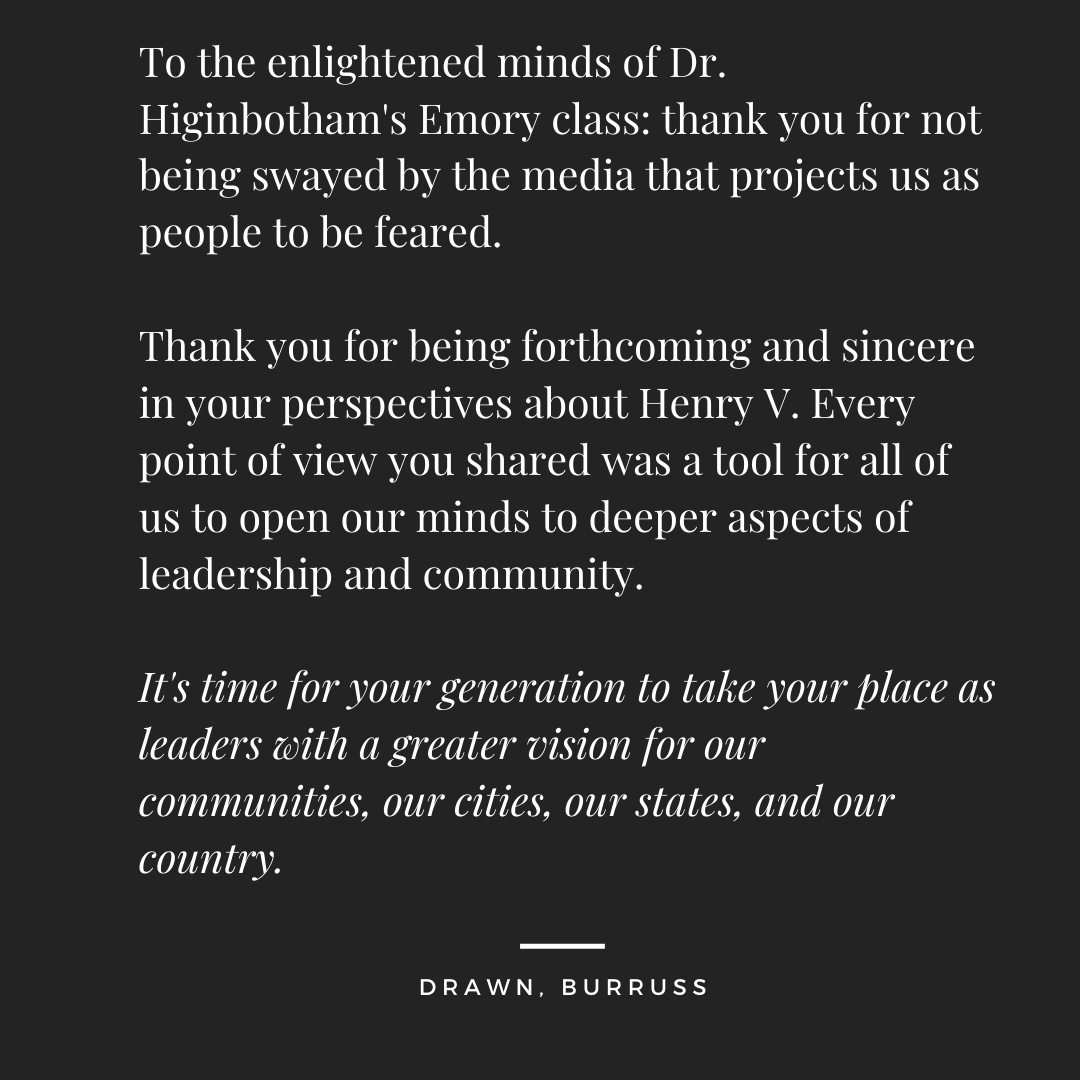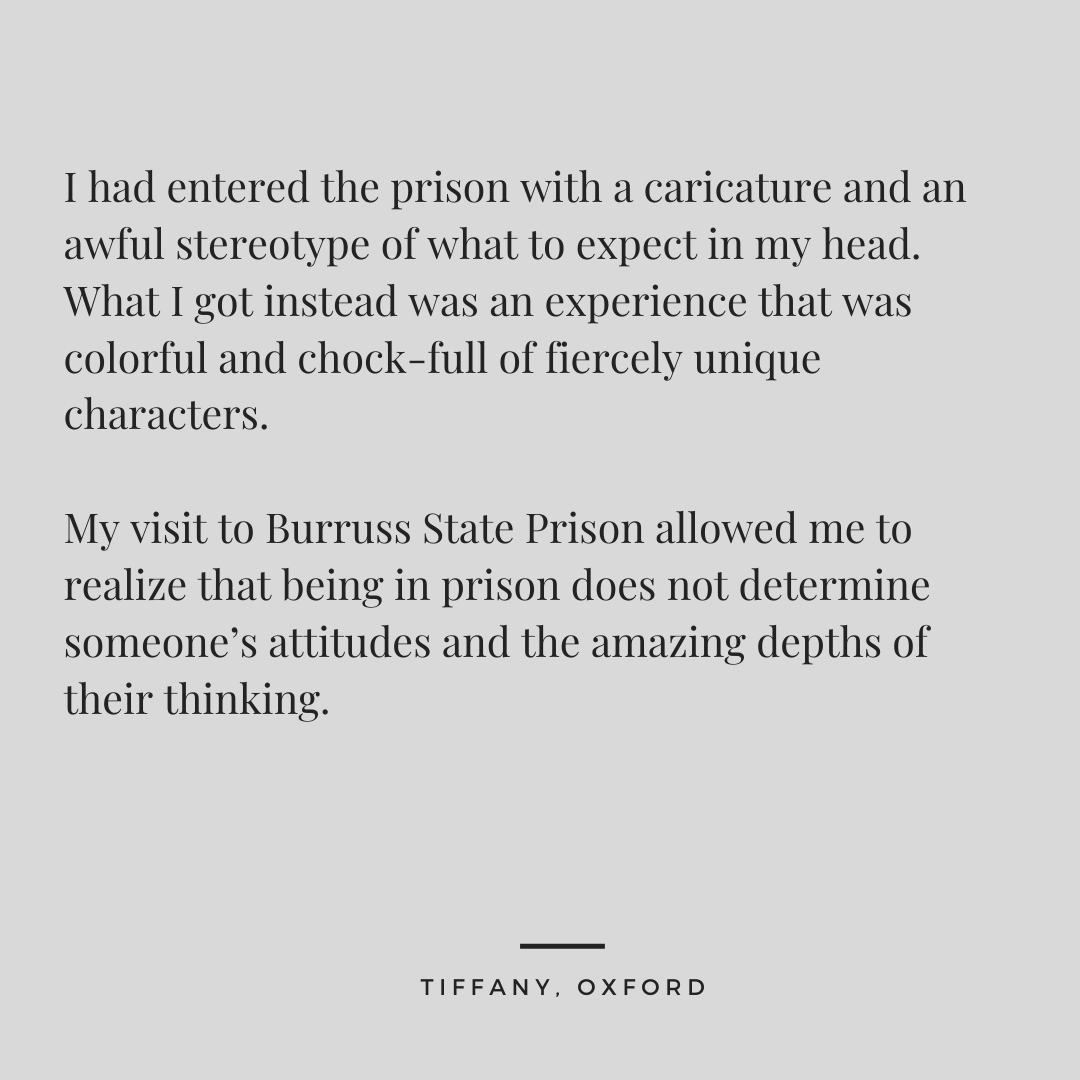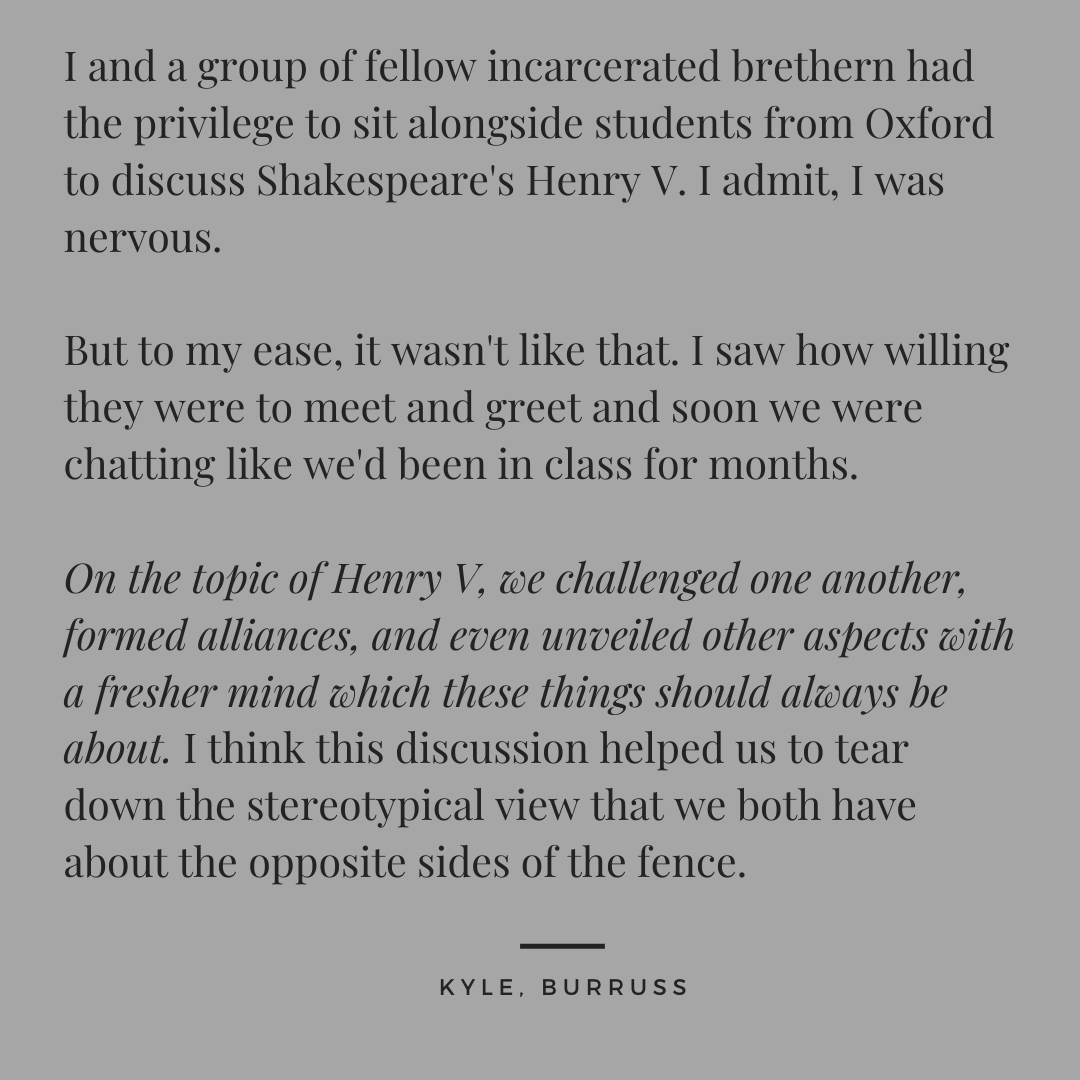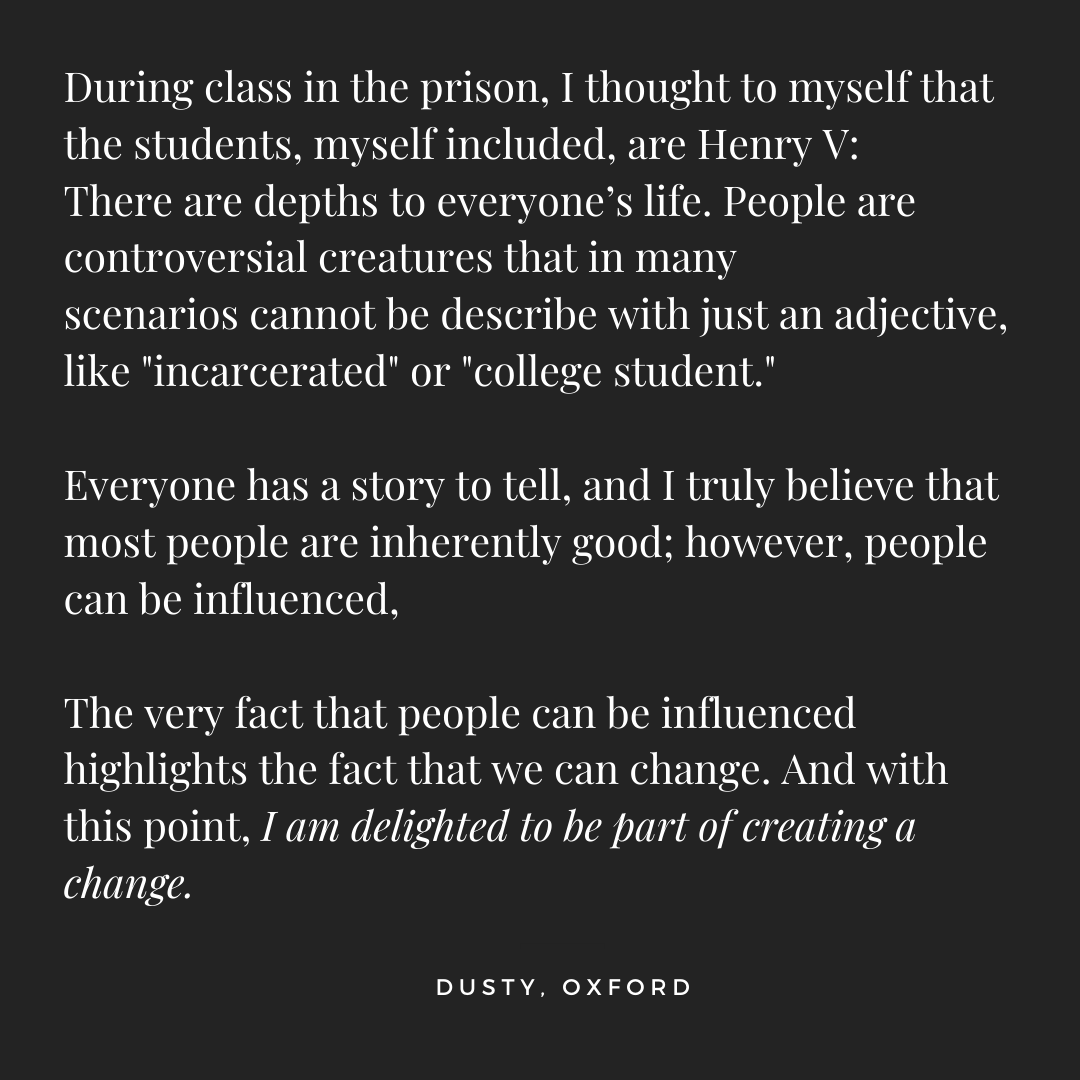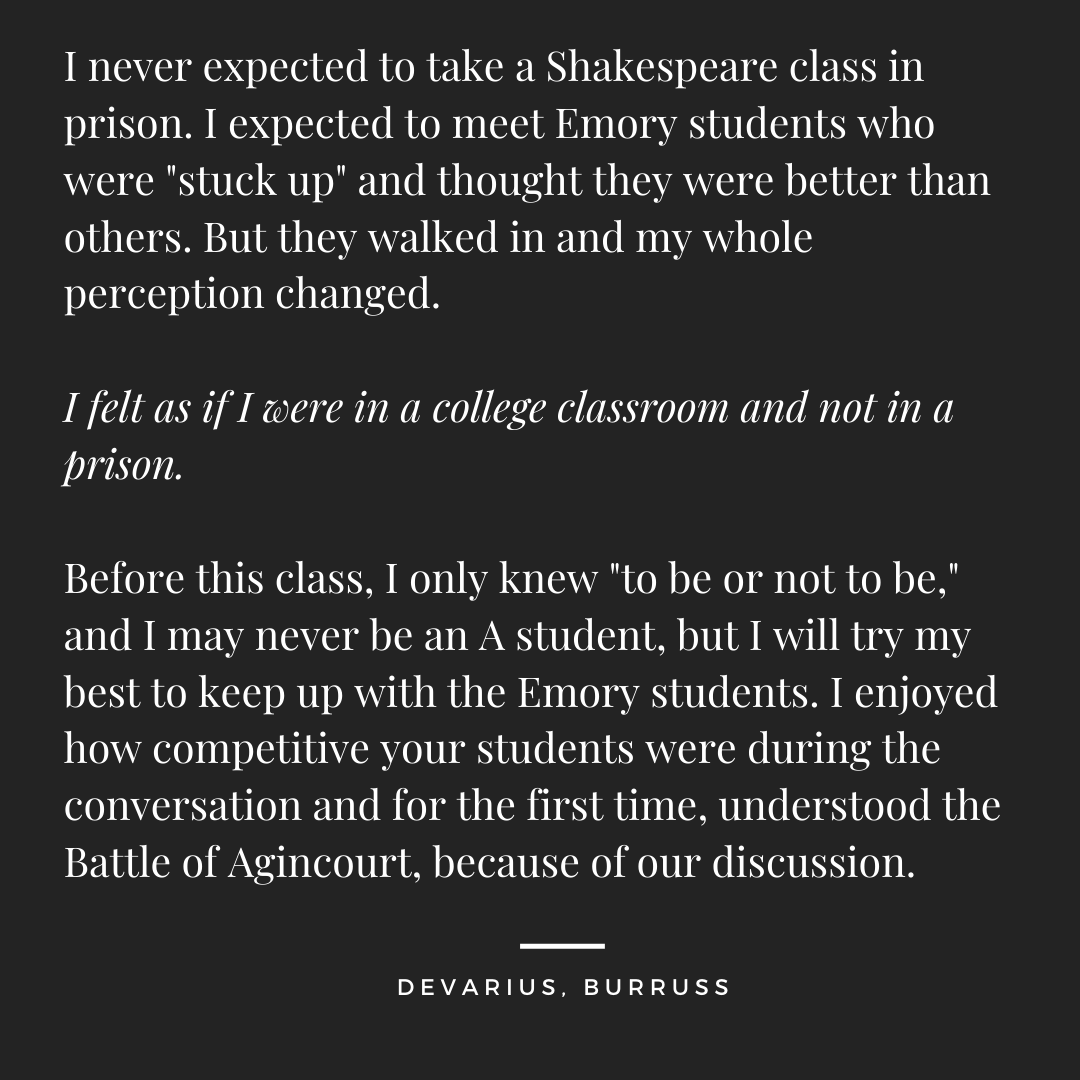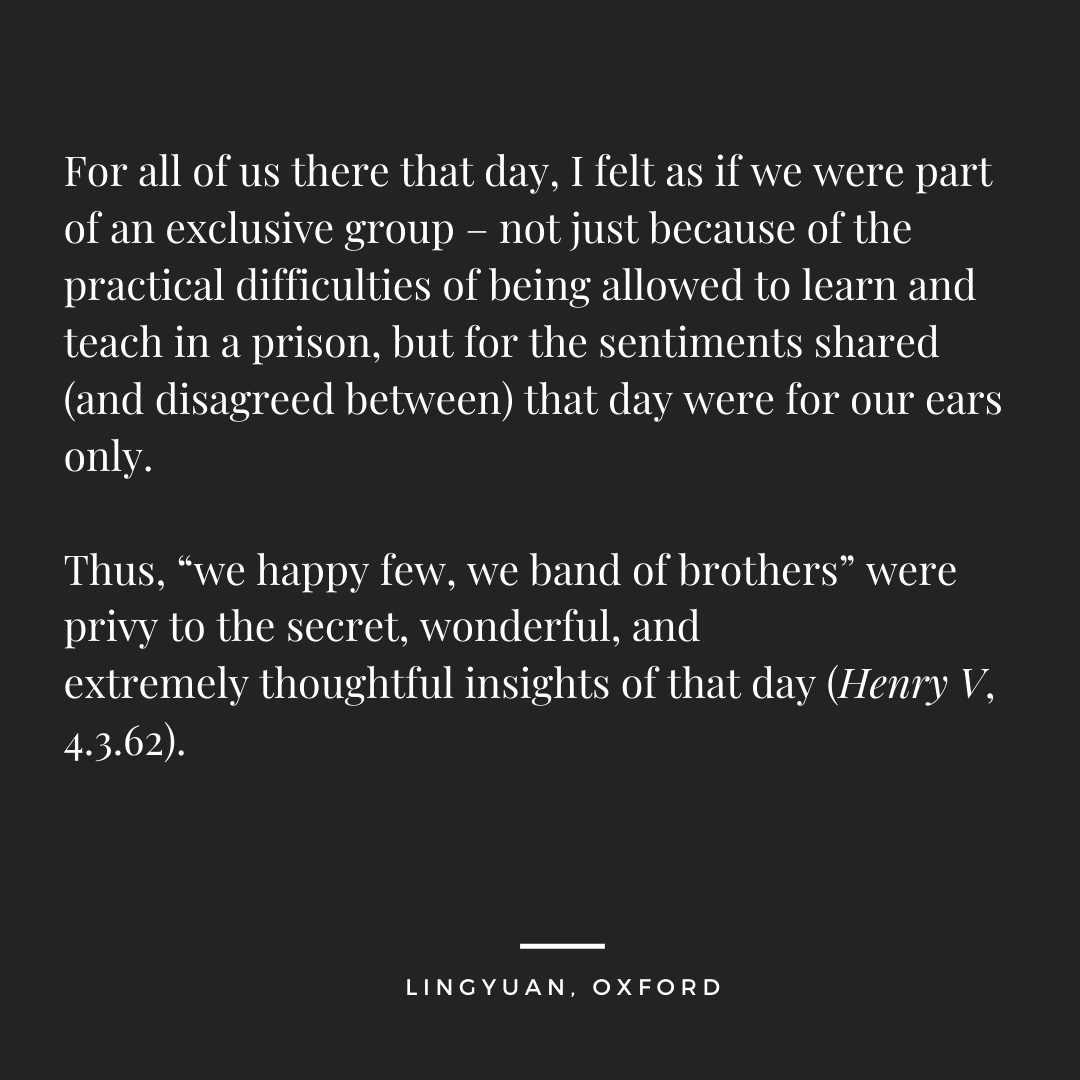Less than two weeks before Covid-19 required us all to be physically distanced from each other, my Oxford Shakespeare students traveled to Burruss Correctional — a Georgia State Prison — to discuss Henry V in a combined class. I had been teaching Shakespeare at both Oxford and at Burruss, and on February 28, we all came together.
Our focus for the class? Community: how does the king who famously said “we few, we happy few, we band of brothers” unite people in community? How does he divide them? In that discussion, we found our own community, one built on respect and deep listening.
Here are some of the reflections from all the students who participated (click on each box to enlarge):
We read King Lear and The Tempest. We read poems and articles and studies and court cases. We listened to speakers, to podcasts. We went to the prison. And we discussed everything. I connected on a deep level to my peers, my professor, and to the literature and themes we studied. I formed vastly new perspectives on social justice, criminalization, and the violence of the law. I renewed my appreciation for Shakespeare, which I seek to sustain. And most of all I grew.
As a writer, reader, speaker, listener, thinker, presenter, and human, I grew.
—S.C.
As I did more research on America’s criminal justice system, I was increasingly astounded with how applicable Measure for Measure‘s commentary on justice is to the contemporary issue. My central research argument was that law and justice require leaders to expend energy in acknowledging the humanity in both the context of a crime as well as the criminal. I analyzed evidence from the play supporting this point and used specific cases from American history, as well as Georgia cases, that demonstrated the complexity of law.
—D.L.
The class being taught at [Anon. State Prison] completely shatters the expectations that you build up about people who broke the law. It was an amazing, cultivating environment for learning. From the moment I first stepped in and was greeted with a heartwarming smile and a firm handshake, I felt at home. It would be a missed opportunity for everyone not to witness that intellectual environment. It will change your preconceived ideas.
—M.G.
I gained a much deeper appreciation and understanding for the play than I had before. The prisoners’ comments about and experiences of surveillance in the prison environment, especially with regards to the Panopticon, gave me an entirely new perspective about Shakespeare and law.
—S.H.
The students from the prison were quick to point out how the soldiers in Henry V were abandoned by the King after he used their blood and sweat to annex another kingdom. I think the reason why this theme is so much more front and center in the prison class is that these people feel angered and wronged by real, practical issues in this country. Like Henry betrayed the commoners he rallied to rout the French at Agincourt, I think many politicians in this country forget about the constituents that they promised to serve.
—C.T.

